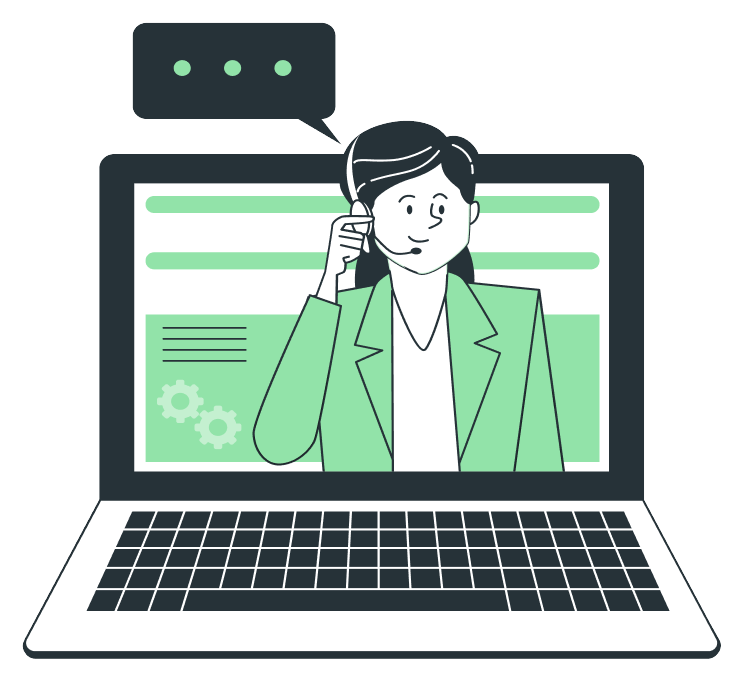
The Importance of Sleep for Students - Catch Those Zzz's to Boost Your Grades
What if we told you your bed is not just a cosy spot but also an effective tool for academic as well as personal success. It is now time to reverse the mentality we have about sleep – that it is a luxury, rather than the ultimate productivity hack. Let's get into the hidden perks of sleeping, especially during stressful exam times.
Sleep is the state when the body is totally relaxed while the rate of bodily functions slows down, such as breathing. Simply put, sleep is when the body relaxes without any exertion.
Everyone sleeps in different ways. People have varying sleep needs in their daily routines. This is why a person needs to have enough sleep every day. Here we are going to explain the significance of sleep in life with more details.
Many studies have revealed that most students in middle and high school across the US had less than the recommended hours of sleep for their age.
Middle School Students (Grades 6–8)- Students from 9 different states were included.
- This represented a total of 6 in every ten students not having enough sleep on weekdays at school.
High School Students (Grades 9–12)
- National sample.
- 7 out of 10 students, which means close to 70 percent, did not get enough sleep on school nights.
Looking for student accommodation?
Our support team can assist you for free Book with BestStudentHalls today!
Causes and Effects of Losing Sleep
There are more indicators that a student is not getting enough sleep than just yawning and being sleepy. Additional symptoms include impulsivity, hyperactivity, micromanagement, and irritability. Loss of sleep also affects health, emotions, academic performance, and driving abilities in less evident ways.
Mental health problems
Insufficient sleep not only makes you irritable and emotional but also elevates the risk of anxiety and depression, while bringing down your ability to handle stressful situations and strong emotions. Moreover, excessive sleep deprivation can cause delirium and hallucinations.
Gain in Weight
Do you worry about the extra pounds you gained this season? Blame it on your sleep cycle. Those getting less than 7 hours of rest every day tend to gain weight more than those who go beyond seven hours. This is because insufficient sleep leads to reduced levels of leptin, which is the hormone that gives a signal for ‘full’ feeling and heightened quantities of hunger-stimulating hormone called ghrelin. The possibility of having adequate sleep may seem unlikely for you in old age. However, its numerous benefits far outweigh its disadvantages because it will leave you with a functioning mind as well as a healthy body.Alcohol and tobacco
Initially, alcohol might facilitate sleeping; nonetheless, it may turn into a stimulant during its metabolism and this may interfere with sleep making the problems worse. As such, smoking can lead to worsening of different sleep disorders for instance RLS and SDB.
Technology
It is absolutely crucial that you leave the digital world out of the bedroom. According to studies, sleeping next to a cell phone tends to exacerbate the quality of your sleep. This could result in sleep disturbances, including struggling to fall asleep and waking frequently during the night.The presence of the computer at bedtime can increase the risk for fatigue driving, daytime sleepiness, and lighter sleep. It is important to note that electronic gadgets produce a lot of light that may negatively affect our sleep rhythms as well as melatonin secretion.
The heart and circulatory system
Sleep modulates blood pressure, blood sugar regulation, inflammation control, and heart vessel healing/rebuilding. The risk of cardiovascular disease may rise with insufficient sleep.Benefits of Getting Enough Sleep
Maintaining a balanced mental and physical state requires you to get a considerable amount of sleep. Here are the key benefits of getting enough sleep for students:
Boost your immune system
Sleep, while not the only factor relating to immune health, is a very important element in immune support. Nighttime surge in some parts of the immune system make you fight infections and improve immunity.Your immune system does this in pretty much the same way that your brain consolidates memories from the day. It even helps your immune cells remember threats more effectively, so they can effectively and precisely fight against them.
Less Stress
If you’ve experienced finals week as a student, you know poor sleep and stress go hand in hand during that busy time. It turns out that the link between the two isn’t just coincidental— poor sleep leads to an increase in cortisol, the stress hormone. What’s more, increased cortisol can result in insomnia, perpetuating a cycle of sleepless nights.Your cortisol naturally drops throughout the day to prepare you for sleep; increased cortisol close to bedtime doesn’t just lead to sleeplessness; it also promotes insulin resistance and poor thyroid function, both of which can lead to obesity, diabetes, anxiety, depression, and more.
Balances Hormone Levels
Sufficient sleep means hormonal balance. The reason for this is that sufficient relaxation results in some cortisone production, the hormone responsible for managing stress levels and produced by adrenal glands which help to regulate other hormones in our bodies. As such it will alleviate tension from body stress and even give room for one to handle difficult tasks involving stressful nature effectively.Performance and Productivity
Getting enough sleep is critically important for your overall well-being and performance in various aspects of life, whether it's at work, school, or completing daily tasks. Enough rest enhances your basic functions like cognitive function, retention of memory, solving problems, and general decision-making. All these functions result in better performance and output. However, not having enough sleep interferes with the way cognitive functions perform, increasing the chances of errors and accident susceptibility while decreasing task efficiency and productivity in areas that require concentration, attention and mental acumen.Look Better
“Beauty sleep” rebuilds and rejuvenates your body. Therefore every time you get enough sleep, it could be said that you are giving yourself a beautiful boost. Sleep is the most effective anti-aging treatment. Collagen production takes place during sleep which helps our skin from sagging down. During sleep, skin cells repair themselves. Sleep aids the body’s elimination of metabolic waste, thereby improving our skin. Sleeping traps moisture in our skin, preserving its youth. Aside from that, sleeping helps us keep our skin looking healthy and attractive. Along with feeling good, one of the best immediate benefits of sleep is looking good.Insufficient Sleep Among Students:
Students are not getting enough sleep, period. Research shows that 35 percent of all adults worldwide do not get enough rest. This translates to about 84 million people, who sleep less than seven or more hours per night.Many students are indeed overburdened with work. Many have a full academic schedule, part-time employment and also struggle to find time for socialising purposes. However, among other things, lack of enough sleep can result in serious academic deterioration. A lot of college students pull an all-nighter when they have to prepare for exams. The long-term effect is grave as sleep deprivation impairs memory recall and focus; two essential facets required for examination success eventually. As a matter of fact, plenty of children who stay up late score lower GPAs.
How Much Sleep Do I Need As a Student?
Do you know? As a student, you need at least 8-9 hours of average sleep to maintain your health.
Let’s see how much sleep you require as per your age:|
Sr. No |
Age |
Mandatory Sleeping Hours |
|
1 |
6-12 Years (School Age) |
9-12 hours |
|
2 |
13-18 Years (Teen) |
8-10 hours |
|
3 |
18 + (Adult) |
7 hours or more |
Importance of Sleep for Students
Students need sleep not only to refresh themselves during the day. Enough sleep is necessary for maintaining good health and ensuring general well-being. Find out about important health benefits of getting enough sleep for students:Improved memory and learning:
When we sleep, our minds classify and consolidate the day’s information that promotes memory enhancement and improves learning capabilities. It is especially crucial for students since they have to cram a lot of data for tests and assignments.Better cognitive function:
Good sleep is important for cognitive performance, including attention and navigation. This leads to better grades.Emotional well-being:
Keeping an emotional balance in every aspect of student life is important. Family, education and friendships among others are just a few of these aspects. One has to have emotional toughness to sail through the disorder of daily existence. A good psychological wellbeing requires one to take enough rest to control stress, anxiety and mood swings properly.Physical health:
Sleep affects physical health, controlling digestion, resistance function, and general physical well-being. Good sleep can ensure weight gain and also prevent you from getting ill.Enhanced athletic performance:
Sleep is of utmost importance for the recovery of muscles, coordination, and general athletic performance for students who engage in sports or physical activities. Good sleep helps students perform really well, be it in sports or any activity of choice.Tips to Get Proper 8 Hours of Sleep for Students
- Keep a consistent schedule
- Workout/exercise
- Keep a dark room while sleeping
- Silence is important, reduce noise
- Limit your caffeine intake
1. Figure out your best bedtime
Building your bedtime around your natural circadian rhythm is the best way to develop better sleep habits in the long term. Pay attention to when you naturally get sleepy, and don’t fight your body’s signals by trying to stay up later. If you don’t already have a natural favourite bedtime, count backwards from your wake-up time, either when you wake up naturally or when you need to be up for classes. Note how much sleep you’ve gotten on mornings when you feel fully rested, then count backwards from your wakeup time to gauge your ideal bedtime—or use a sleep calculator to find your perfect bedtime.
2. Clean up your diet
Have you ever heard of the saying, "You are what you eat?" Well, there is some truth to that. Actually, a better translation would be, "You feel what you eat." If you eat greasy fast food all day, you are going to feel terrible, and it also affects your sleep. According to Sleep.org, a low-fibre and high-saturated fat diet will affect your deep sleep. These foods also create havoc for those who suffer from gastroesophageal reflux disease (GERD). Too much sugar can also lead to you waking more often in the middle of the night. Particularly, try to avoid eating these foods as you approach bedtime because you are going to be more likely to lose sleep and gain fat, which is a lose-lose situation.3. No Caffeine Before Bedtime
Coffee is most definitely a student's best friend and worst enemy. However, it is important to understand the role that sleep plays for students and how caffeine can be one of the worst culprits for making a good night's rest elusive. A cup of coffee in the morning, or even one in the evening, is fine, but if you value the importance of sleep, then you will stay away from coffee before bed. Caffeine keeps you alert and heightens your senses at a time when your body should, ideally, be slowing down. It is, therefore, better to stay away from coffee before bed if you want to have a good night's sleep.4. Avoid naps, especially early and late in the day
Naps during the day can get in the way of sleep at night, especially if they take place early or late in the day. So, no going to your early morning class and then collapsing back into bed. "If you are feeling sleepy and wish to nap, remain awake and active for at least 3 hours after your new wake-up time before taking a nap. The same goes with nighttime naps: Don't nap less than six hours before bedtime. If you must nap, do it in the afternoon and keep it under half an hour.5. Prioritise YOU
Prioritise your mental and physical health and ensure you get at least close to 8 hours of sleep every night, especially the week before and the week of large projects, exams, or any other stressful event.Conclusion
Whether you are a stressed-out student or just trying to get your life together, your sleep likely suffers because of the changes and stress that you have been going through. Missing a few hours of sleep is normal once in a while, but too much sleep deprivation may result in riskier health troubles, such as brain disease, heart disease, and lowered immunity.Getting enough sleep isn't just a good idea; it can improve your academic performance, your productivity, and your mental health. Establish healthy sleep habits today to reap these benefits as soon as you can!


6 Weather Essentials for Students Living in Glasgow

COVID-19 and Student Accommodation : Everything You Need to Know
Get the Information about the COVID 19 and Student Accommodation from the Best Student Halls.

Covid 19 & University - My Experience
COVID-19 has constrained us all to rethink how we conveyance a connecting with and all-engaging learning experience for students.

 Free Cancellation
Free Cancellation







